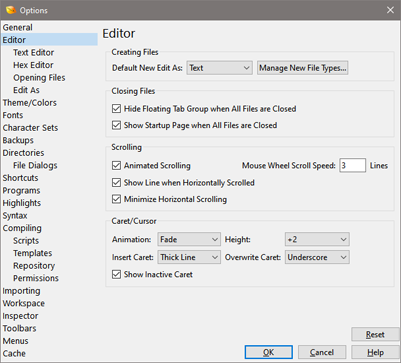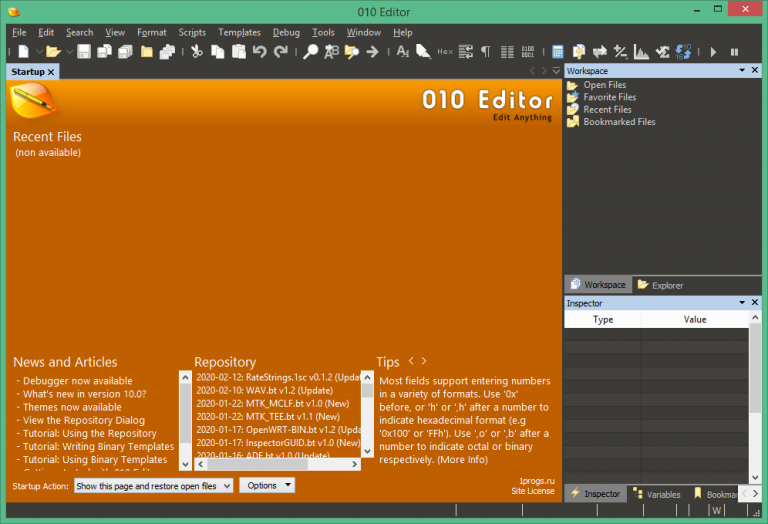

When using #link in a Template, the Template will require permission from the user to access the DLL as discussed below. If the library could not be found or the function could not be found inside the library then an error is generated and execution of the Script or Template is stopped. Library file names can be given with no extension, in which case they will automatically be given the extension. When a library file name is specified with a #link statement, 010 Editor looks for the library in a number of different directories in the same order that is used for Includes.
#010 editor uint32 hash code#
Any other code can be placed inside a #link, #endlink section but limiting the code in this section to function prototypes is recommended. only a semicolon should be placed after the function prototype). The declared functions should not have a body (i.e. For example: #link "TestDLL.dll" int MyDLLFunc1( int a, int b ) In a Script or Template, to declare a function that exists inside an external DLL enclose the function prototypes inside a ' #link ""' statement and an ' #endlink' statement. Note that the 32-bit version of 010 Editor must be used when calling functions in a 32-bit library and the 64-bit version of 010 Editor but be used when calling functions in an 64-bit library. Supported libraries include DLLs on Windows (*.dll), Shared Objects on Linux (*.so), and DYLIB libraries on macOS (*.dylib).

Installing Files on Open from the RepositoryĪ Script or Template can execute a function that is located inside an external dynamic linked library.Using 010 Editor - Templates and Scripts.


 0 kommentar(er)
0 kommentar(er)
